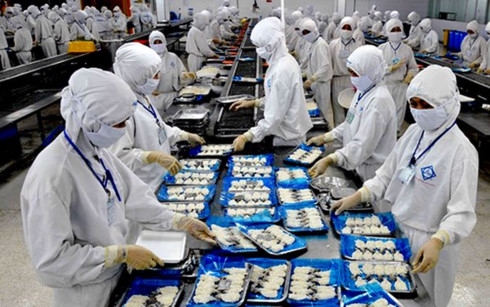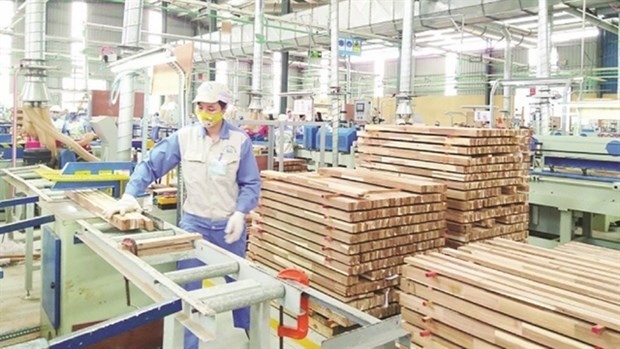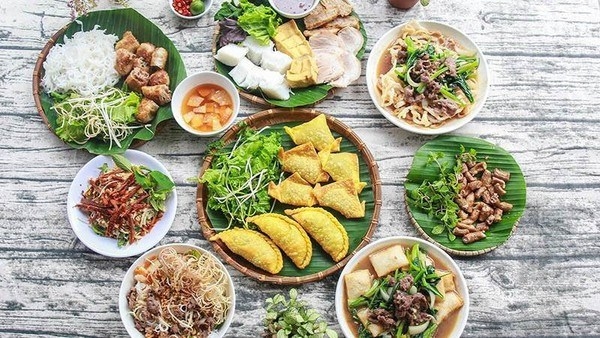
AsemconnectVietnam - The EU-Vietnam Free Trade Agreement, with its extensive tariff cuts for agri-food products, is prompting foreign companies to enter the Southeast Asian market seeking investment and business opportunities in these products.
After seven years of negotiations, Vietnam and the EU are currently completing final procedures to sign the bilateral free trade agreement (EVFTA) in October or November. The deal is expected to take effect in 2019.
Once the EVFTA takes effect, the EU will open its doors to Vietnam’s agri-food immediately, creating scores of opportunities for the Southeast Asian nation-a major exporter of farm produce-to penetrate further into the EU market with its population of over 500 million people. Specifically, the EU will, upon the deal’s entry into force, eliminate 94 of the total 547 tariff lines on fruit and vegetable products, many of which are Vietnam’s strengths, including lychees, rambutans, longans, dragon fruit, pineapples, and melons. Currently, the average tariff rates applied to these products are high, at 10-20%.
“This EU commitment will give major advantages to Vietnam’s vegetable and fruit products in the EU market, especially considering that these products have to fiercely compete with those imported from Thailand and China into the EU,” said a recently released report by the Vietnam Chamber of Industry and Commerce.
Ayuo Takahashi, vice director of a large Japanese firm producing agri-food products in Japan’s Miyazaki prefecture, recently visited the northern and Central Highlands provinces of Son La, Lao Cai and Lam Dong to explore opportunities for his company to cultivate fruit and vegetables.
“The EU-Japan FTA, which was signed in July 2018 and will take effect in March 2019, will create more opportunities for us to export to the EU. However, because of material shortages in Japan, we have to boost production in Vietnam and then export to the EU,” Takahashi said. “If the EVFTA takes effect, it will enable us to benefit much more from the EU market when we export our products from Vietnam, where we can source materials more easily.”
A group of 20 Japanese investors also visited the Mekong Delta in search of investment opportunities in mangos, rambutans, and shrimp and fish farming. Many of them plan to cooperate with local farms and enterprises to specialise in these products, which will be both locally consumed and exported to Japan and the EU.
According to the Dutch Ministry of Agriculture, Nature, and Food Quality, the EVFTA will greatly benefit Dutch companies in Vietnam with the commodities of milk and dairy, fruit and vegetables, coffee, cashews, fishery, and livestock, which are to see tariffs eliminated either when the deal comes into force or soon thereafter.
“With these commodities, there are huge opportunities for Dutch companies to do business in Vietnam, especially in the agri-processing industry, since most of the key agricultural products will enjoy 0% in taxes after the EVFTA takes effect,” said a ministry briefing on potential impacts of the EVFTA on Dutch businesses in Vietnam.
“The food processing industry will develop in the areas of coffee, cashews, dairy products, and seafood. Some notable cases of successful Dutch companies specialised in agribusiness include Friesland Campina for milk and dairy products, NedCoffee B.V. for coffee trading and processing, Nedspice Processing Vietnam for manufacturing agricultural products, and Anova Food B.V. for trading seafood,” the briefing said.
One chapter in the EVFTA addresses sanitary and phytosanitary measures (SPS), specifically aimed at facilitating trade in plant and animal products. The two sides have agreed to mutually recognise each other’s SPS methods to reduce the time and barriers for SPS testing between Vietnam and the EU.
“These provisions will facilitate access for EU companies producing a large variety of products such as food and drinks, agricultural products, and seafood products in the Vietnamese market. With around 20% of Dutch companies in Vietnam active in the agribusiness and processing industry, the EVFTA will have powerful effects for the Dutch business community,” said the briefing.
Since food safety and hygiene has become an increasingly important issue in Vietnam, the EVFTA will create opportunities for Dutch companies to penetrate the market with their high-quality food products, including fruit and vegetables, beverages, and meat. Vietnam will open its market for EU food products. Some of the key products are wines and spirits (to be liberalised after seven years), beef (after three years), and frozen pork (after seven years).
Dutch company De Heus LLC Vietnam is active in Vietnam providing clean and safe pork, while Dutch beer giant Heineken has earned a reputation as one of the largest foreign companies working in Vietnam’s beverage industry.
Source: vov.vn






